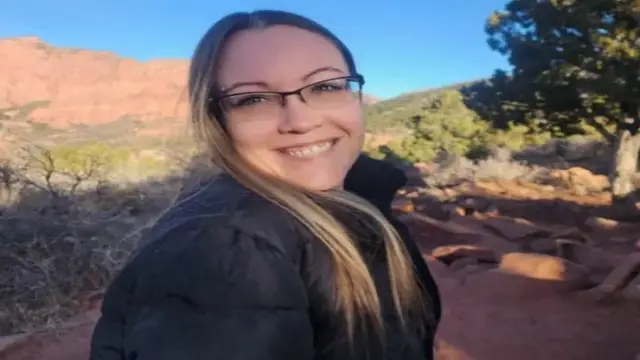Why This Investor Left the Pursuit of Billion-Dollar Exits to Help Employers Hire People With Autism
As an investor, Brian Jacobs has gone through right around three decades wagering on programming intended to make organizations progressively beneficial — from Salesforce to videoconferencing organization Zoom. As a parent, he’s discovered that better innovation isn’t in every case enough.
Key Points
Jacobs’ 24-year-old child is one of 3.5 million Americans living with mental imbalance range issue. In spite of a software engineering certificate from the lofty California Polytechnic State University (Cal Poly) and the unending interest for specialized ability in the Bay Area, he battled when it came to getting a new line of work.
After meetings and occupation fairs, he simply wasn’t getting gotten back to.
“Meeting for work is the most noticeably terrible thing for anybody on the range,” said Jacobs, who asked that we not distribute his child’s name for protection reasons. “His mind works in an unexpected way. He needs to thoroughly consider things and needs to process more data just to find a similar solution, with the goal that influences his discourse.”
Like such a significant number of fruitful tech speculators, Jacobs sees opportunity in market wasteful aspects. This month, he reported his takeoff from Emergence Capital, the firm he helped to establish in 2003, to begin Moai Capital with $10 million of individual cash. On its site, Moai depicts itself as “a mental imbalance amicable working environment,” and one of its topics is chemical imbalance business, which Jacobs places in the class of “sway contributing.”
Not Backing Philanthropies
In any case, Jacobs isn’t expecting the sort of profits from effect ventures that he encountered at Emergence, which produced billions of dollars from the IPOs of Zoom prior this year and human services programming supplier Veeva Systems in 2013.
“Customary benefit-driven VCs have not put resources into these organizations,” Jacobs said. “Effect contributing is another class. I’m adapting to new things. I’m seeing other similarly invested speculators making comparative moves. I’ve taken in a great deal by conversing with them yet it additionally feels like we’re all wandering off into doubtful territory.”About one out of 59 youngsters are determined to have a chemical imbalance, as per the Centers for Disease Control and Prevention, and the numbers have been on the ascent. Since chemical imbalance influences correspondence and frequently makes normal social communications especially testing, conventional organizations need to change how they meet, train and oversee on the off chance that they’re going to contract individuals on the range.
There are convincing business motivations to try. As Auticon, an IT consultancy upheld by Jacobs, says on its site, individuals with mental imbalance will, in general, have certain subjective preferences, as solid explanatory capacities, “continued fixation and persistence when errands are dull,” a feeling of dedication and tender loving care.
“There’s a gigantic work hole for people on the range and that appeared as though something I could affect,” said Jacobs, who has gone through the previous six years on the leading body of the non-benefit Autism Asperger Spectrum Coalition for Education, Networking and Development (ASCEND).
While Jacobs just authoritatively propelled Moai, whose name alludes to the famous hand-cut statues on Easter Island in the South Pacific Ocean, he began making some side speculations in the course of the last couple a very long time in territories of increasingly close to home intrigue. Those have now turned into his principle center.
The three mental imbalance business organizations he’s supported are Auticon, established in Germany; Divergent, which creates work status and preparing programs for individuals on the range; and Ultranauts, an IT administrations organization hoping to contract individuals with chemical imbalance who flourish in remote workplaces.
Rethinking the Way Companies Hire
Moai took an interest in the $3.5 million financings round that Ultranauts declared toward the beginning of August. The organization has representatives in 20 states giving the sort of work to enormous customers that place it in rivalry with Capgemini and IBM. Seventy-five percent of its 60 or more individual staff are on the range.
Rajesh Anandan and Arthur Shectman, two specialists from the Massachusetts Institute of Technology, established the organization in 2013. Anandan said he was attracted to the idea through discussions with his better half, who’d been a tyke analyst and had various patients on the range. She discussed a framework set up that spotlights on the difficulties the purported neurodiverse face instead of one that attempts to outfit their intrinsic aptitudes.
“Imagine a scenario in which we concentrated on people groups’ qualities and overhauled the framework so individuals are not punished for being extraordinary?” Anandan said in a meeting. “We’ve had the option to demonstrate we can assemble a group that incorporates partners who are on the range who don’t have past work involvement in the field however are amazingly fit, and husband to be that crude ability into gifted designers.”
Anandan calls it an upper hand, not an altruistic interest. Simultaneously it creates open doors for budgetary autonomy for individuals on the range and addresses an issue they face after age 21 when they’re commonly no longer qualified to get uncommon taxpayer driven organizations.
Byran Dai, an information researcher and the CEO of Divergent, has a 20-year-old sibling on the range. Dai said his more youthful kin has some well informed, yet the professional projects accessible to him don’t exploit his capacities.
I see my sibling, he has an inclination for PCs however he’s loading racks at CVS,” stated, Dai, who began Divergent in 2017. “There’s a method to use the need and request in AI and information science to bring people into that populace and begin to upskill them.”
Daivergent’s representatives give specialized and thorough administrations to organizations creating AI items. The start-up likewise has a work-availability framework to help the neurodiverse get ready for occupations and match them with organizations hoping to take advantage of the network.
One of the product frameworks Daivergent connects to is SAP, which happens to be a similar organization that enlisted Jacobs’ child as a product designer a year ago. SAP propelled its Autism at Work program in 2013 with an objective of utilizing 650 individuals on the range by 2020. Jacobs said he’s been a long-lasting supporter of Jose Velasco, who runs the activity, and that Microsoft, Salesforce and J.P. Morgan Chase are among organizations that are realizing what fills in as they set up their own projects.
“They’re for the most part gaining from one another and making sense of how to adjust their contracting procedure, onboarding procedure and instructing process,” Jacobs said. “Every one of these things you need to reconsider, particularly in case you’re doing it at scale at a major organization.”






















